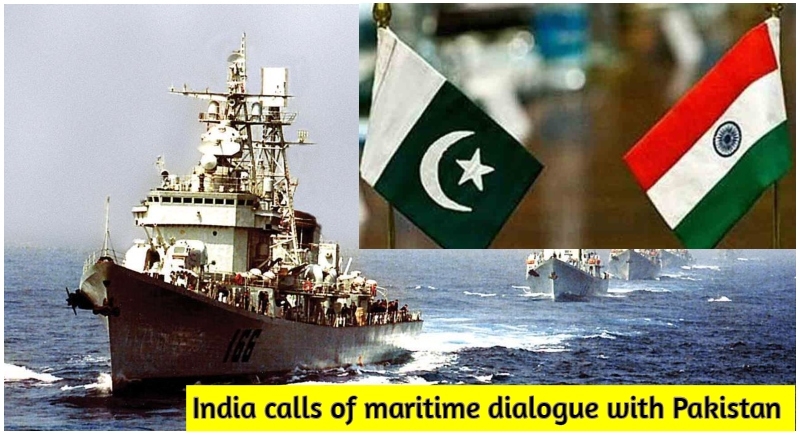Standing firm on ‘terror and talks’ cannot go together, India cancels maritime annual dialogue with Pakistan
New Delhi, March 20: Escalating tensions and mounting international pressure on Pakistan has forced the nation to take stringent action against terrorism. However, Pakistan still harbours terrorism by safeguarding its terrorists. Standing firm on his stance, ‘terror and talks’ cannot go together, India has staunchly restricted from having bilateral talks with Pakistan. As the Kartarpur corridor talks continue, India had cancelled the dialogue between the Coast Guards of India and Pakistan which was scheduled in Pakistan.

This move comes in the wake of Pulwama terror attack; India had cancelled the maritime annual dialogue between the Coast Guards of India and Pakistan. Indian DG Coast Guard, Rajendra Singh was supposed to visit Pakistan for the dialogue but it was scrapped in lieu of the attack.
On February 14, 40 CRPF jawans lost their lives and several others were injured in a terror attack carried out by a Pakistan-based suicide bomber in Jammu and Kashmir's Pulwama district. The terror group Jaish-e-Mohammad took responsibility of the attack, still Pakistan pitched on to get enough evidence to convict the perpetrators.
Following the attack, India had withdrawn the Most Favoured Nation (MFN) status accorded to Pakistan. The Indian government also asked Pakistan to take stern action against terrorists and terrorist groups operating on its soil.
Several world leaders also condemned the attack and called out Pakistan for nurturing and harbouring terrorists. The tension between India and Pakistan also came to the verge of war after India carried out air strikes on terror camps in Pakistan’s Balakot on February 26 to avenge the Pulwama terror attack. Earlier this month, considering the escalated tension with its neighbouring country, India deployed the aircraft carrier INS Vikramaditya and nuclear submarine INS Chakra in the Northern Arabian sea off Pakistan coast.
To stave off any threat to the aircraft carrier, the nuclear attack submarine was deployed as part of the aircraft carrier’s battle group. The battle group also consisted of warships giving a tactical edge to Indian Navy’s assets providing 360-degree protection from air, water and underwater.